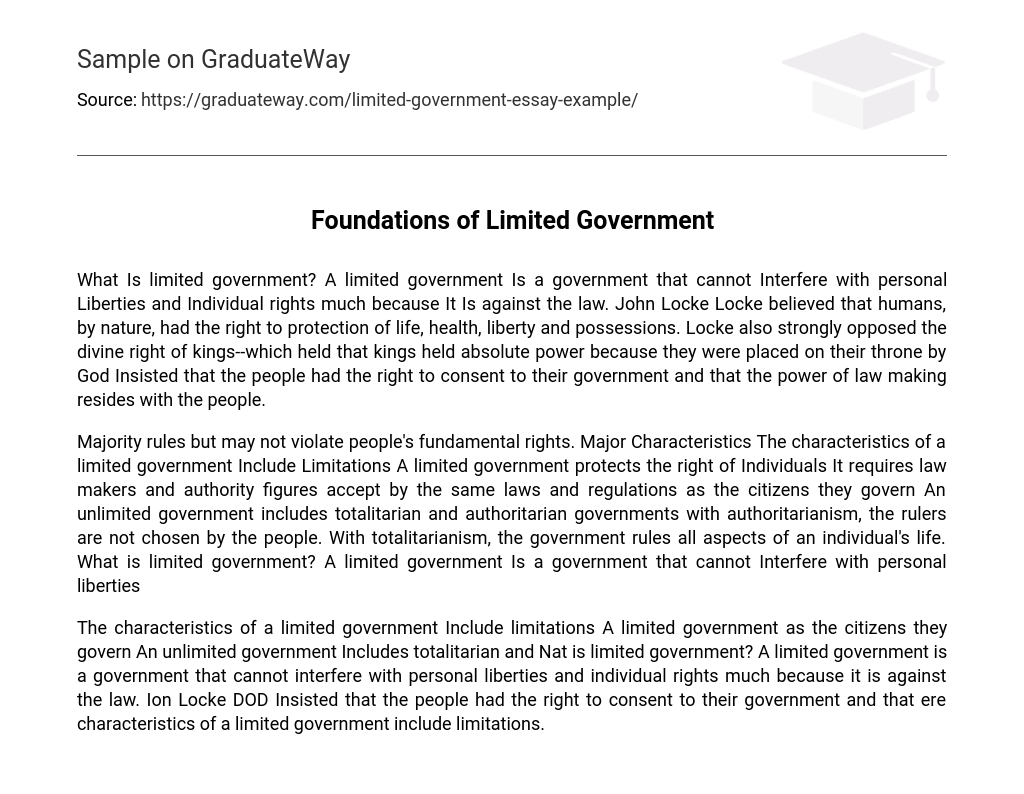What Is limited government? A limited government is a government that cannot interfere with personal liberties and individual rights much because it is against the law. John Locke believed that humans, by nature, had the right to protection of life, health, liberty and possessions. Locke also strongly opposed the divine right of kings–which held that kings held absolute power because they were placed on their throne by God. He insisted that the people had the right to consent to their government and that the power of law making resides with the people.
Majority rules but must not violate fundamental rights, and this is a key aspect of a limited government. A limited government safeguards individuals’ rights and requires legislators and authorities to follow the same laws as the citizens they govern. However, an unlimited government incorporates totalitarian and authoritarian regimes. Authoritarianism includes rulers who are not elected by the people, while totalitarianism encompasses complete control over every aspect of an individual’s life by the government. Thus, what precisely characterizes a limited government? It pertains to a government that cannot infringe upon personal liberties.
A limited government is defined by its restrictions on interference with personal liberties and individual rights, as it is prohibited by law. John Locke emphasized the importance of individuals consenting to their government. Therefore, the characteristics of a limited government are synonymous with limitations.





